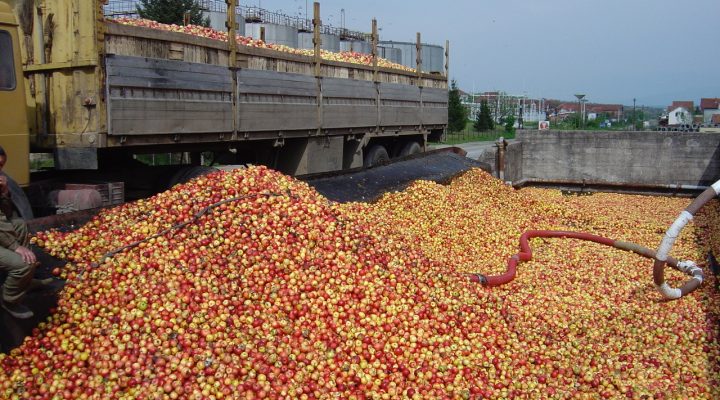Juice specialist Remer Lane reports for FJF on the world of juice according to Serbia with insights into the unique fruits and flavours that make for award-winning juices.
Friday morning, August 28, 2020, I turned the cap on the Life Premium Sour Cherry Juice. The aroma of the Oblacinska Cherry immediately stimulated a memory that carried me 17-years back in time to Serbia. I was sitting in a cafe on Lake Palic in Subotica. There, over 4 bottles of an exceptional Pannonian dry white wine, I outlined a strategy, debated, challenged, and cajoled the CEO of Fresh & Co Juice company to put Raspberries in a bottle. Within 3-years Coca-Cola Hellenic Bottling had acquired the company. Over the three preceding years, that 100% Raspberry Juice had been awarded the World’s Most Innovative Juice at the World Juice Conference in 2004 and millions of bottles were in stores and cafes across Europe and in the US.
Next Juice was a synonym for a vibrancy of change and innovation sweeping the former Yugoslav Republic, and the re-opening of a hidden market of amazing fruits bred exclusively to produce some of the world’s finest juices. The Willamette Raspberry, The Stanley Plum, the Oblacinska Cherry and Senga Sengana Strawberry are well known fruit varieties, offering the highest flavour, colour and dry matter solids over any other processing fruits. There is a reason Serbia is the largest exporter of frozen raspberries in the world.
At the first taste, the burst of cherries overwhelmed my senses. The small particulates of fruit provided a texture as if fresh pressed in the kitchen. Naturalness truly represents the best a juice should be for all consumers.
My reminiscing continued… It’s now 2008 and I’m hiking along the trails of Mt. Kaopanik in Southern Serbia. Vaso Lekic, a food purist for all that’s natural and healthy, has launched a new product line called Terra Organica. As we walk the surroundings of his processing plant, we can smell the smoke from grilling peppers that will soon be stripped and stewed into a delicacy of roasted red peppers spread called Ajvar. Vaso wants to do more and he believes the wild organic fruits of Southern Serbia offer some amazing potential. He casually picks a wild strawberry from the hillside and looks at me in wonderment. This is his next product.
Without delay, he’s organized the local population surrounding the mountain to collect the fruit, preserve the environment and assure a future sustainable crop. The fruit was pressed in his mountainside kitchen and so was born Terra Organica’s Wild Strawberry Juice and Serbia’s second World Juice Innovation Award.
Today, Serbia has the largest juice company in Southeastern Europe Nectar-Fructal with full vertical integration from field to consumer. There are up to 12 fruit juice processing plants in the country with exports exceeding USD50 million. Austria and Germany are the key importers by value with Raspberry, Sour Cherry and Apple as the leading exported concentrates with an expectation that Blueberry will soon be in the mix due to a significant surge in plantings. The juice this country produces is traditional, colourful and filled with flavour, it’s the naturalness and purity that truly represents what juice should be.
I’ve just returned from my most recent visit to Serbia, two weeks of social distanced meetings and masks to learn more about the current state of industry in the country. I am further convinced that the quality of fruit that this small country produces is truly some of the finest in the world. Such a pleasant alternative to global politics and the pandemic.
As I finish my Sour Cherry Juice, I wonder, is this the next winner? Will this Sour Cherry be the next to take home the recognition of being one of the best juices in the world? It is for me…
Remer Lane is an international investment banker with Heritage Capital Group / Oaklins based in Savannah, GA. He has spent the last 35 years working with the food and juice industries playing a number or roles from field production to processing to offering a product to the final consumer.





